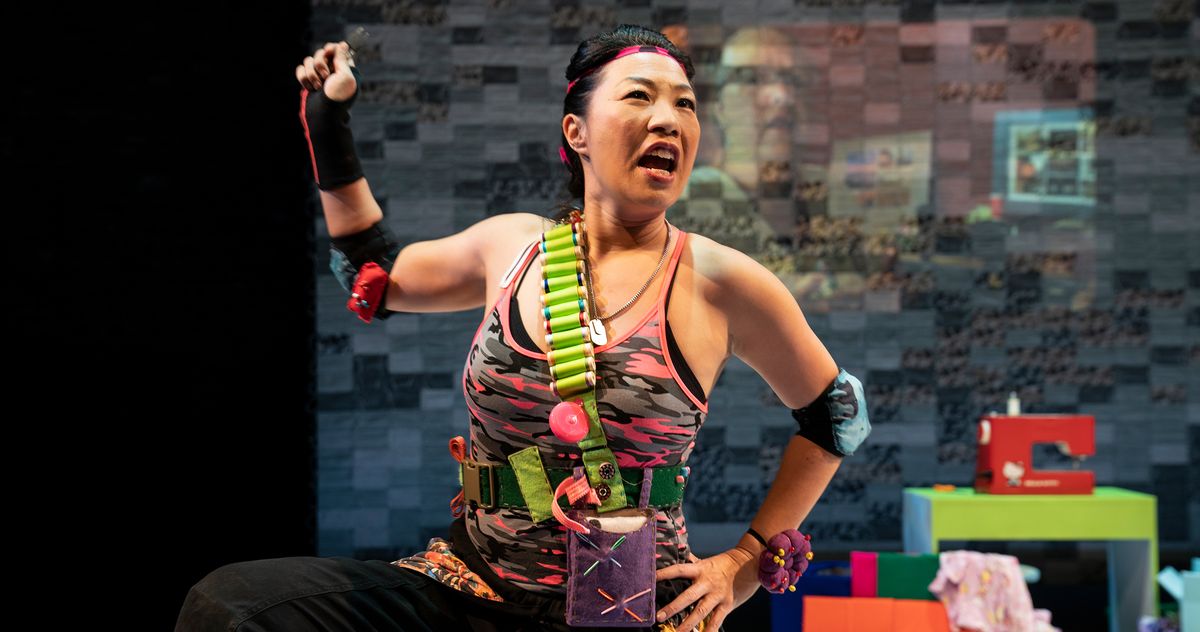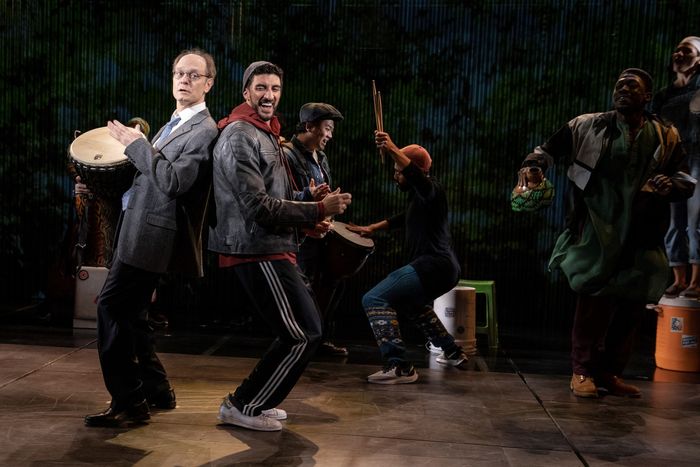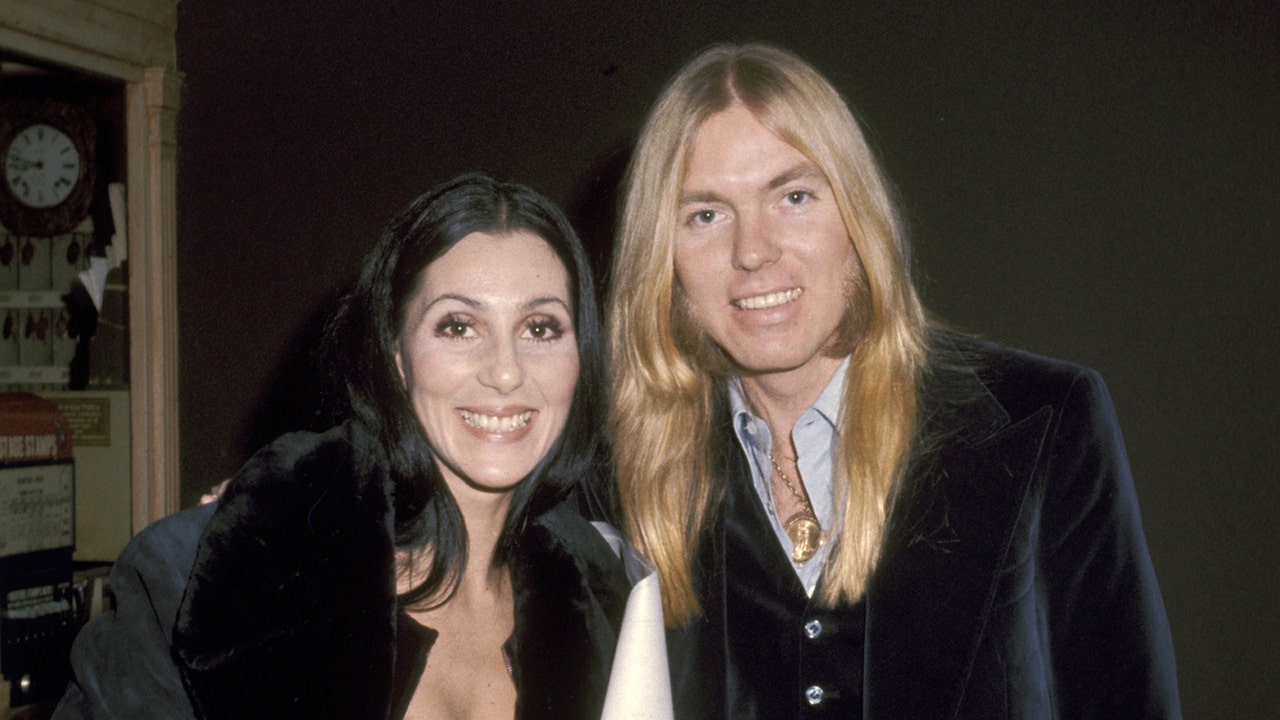From Kristina Wong, Sweatshop Overlord, at New York Theatre Workshop.
Photo: Joan Marcus
As someone who once worked — sort of, long ago — in the literary department of a theater, I am familiar with the typical response to a season proposal. A writer or a dramaturg or a director pitches a show, and the artistic director steeples his fingers and nods thoughtfully. “Why this play?” he asks. “Why now?” In these conversations, relevance is always king. But even in quieter years than this one, chasing currency had its dangers. Theater is a slow-moving form, and what seems on-point early in a development process can change past recognition by the time the show actually happens. Also — the world is always with us. Do audiences want to walk into a theater to see exactly what’s outside? How much relevance can we bear?
Just a few blocks apart in New York, two theaters are struggling with these questions. They don’t struggle equally: One of the shows is embarrassing, while the other is delightful and moving. But in this one way, they’re alike. Hamlet said that the theater’s purpose was to show “the very age and body of the time his form and pressure.” In The Visitor and Kristina Wong, Sweatshop Overlord, you see the “body of the time” exerting a whole hell of a lot of pressure back.
The bad show is The Visitor. The Public Theater’s musical adaptation of Tom McCarthy’s 2007 movie is poorly made enough that post-shutdown gratitude cannot help it; it’s confused enough that some performers looked reluctant even when taking their bows. Tone, taste, pace, execution—all are a mess. And after a certain point, its choices pratfall into chaos, becoming accidentally hilarious. To illustrate: There’s a super-serious dance number staged in an immigration detention center (5, 6, 7 … lift that detainee!) that still gives me the horrified giggles.
What went wrong? It’s a little hard to understand the allure of the original material, for one thing. McCarthy’s film about of a white professor named Walter who befriends the undocumented immigrants Tarek and Zainab, one of whom gets imprisoned by ICE, succeeds in a few intimate moments, but even this delicacy fights the rough requirements of the theater. The director Daniel Sullivan and the adaptors (composer Tom Kitt, lyricist Brian Yorkey, and book-writers Yorkey and Kwame Kwei-Armah) have fumbled the transition from screen to stage, and there are few rewards in a show that includes such faceplant verses as
There will be home…
Somehow, you’ll see…
We will find home
For you and me.
But what kills the show stone-dead is its intersection with the moment. Many of the show’s problems have made the news, including a postponement due to what the theater called “conversations and commitments around equity and anti-racism,” which led to a weeklong attempt to “decenter whiteness.” Walter sits at the heart of the plot, and the show has been in development for more than half a decade. What could they do in a week? Then, seemingly hours before the first preview, Ari’el Stachel, who had been playing Tarek for the six-year-long workshop process, left the production by “mutual decision.” (Ahmad Maksoud now plays the part.) Whatever conversations, whatever adjustments the team was making were clearly melting down.
The Public’s decision to produce The Visitor goes back ages. I can imagine how the original choice radiated relevance—we need to address the cruelty of our immigration system—and following through on a long-term commitment to a group of artists is a moral decision. But when the material becomes odious to the people making it, surely the answer is not to make a show that apologizes for itself as it’s happening. This shrinking quality is what makes The Visitor so difficult to watch. The dancing detainees or the cheesy drum circle (don’t ask) are at least ridiculous, but among the principals, there’s an unamusing fog of shame rolling off the actors and seeping into the audience. David Hyde Pierce plays Walter, and he’s left alone on stage to sing the show’s 11 o’clock number:
It’s such a poor, pathetic sight:
One old man, one errant knight
Awakened to this world at last.
But if there is a god, well, then
A thousand old and tired white men
A million old and scared white men
Will wake up just like me —
And fast.
Clearly the effort to decenter white men hasn’t gone great. But that, in and of itself, isn’t the trouble here. The show has begun to turn its anger inwards, and a musical must have confidence to survive. The world got into the rehearsal room; the confrontation tore this project apart. As its performances continue, the voices will get surer, and the odd uncertain wobbles will perhaps resolve as the company settles into production and puts those mid-October fights behind them. But the musical itself has also been shaped by those struggles, pummeled by them, humiliated by them. And that’s what we’re left with—the sound of a show that doesn’t believe in what it’s doing anymore.
If you want belief, you’ll have to go two blocks over to New York Theatre Workshop. There, Kristina Wong, performance artist and recently minted community organizer, is doing her one-woman show Kristina Wong, Sweatshop Overlord. Onstage, Wong has two sharp weapons at her disposal: She’s funny, and she can sew. Her shows often include homemade props—here she brandishes a felt iPad and a bandolier packing a pair of huge scissors stitched from cloth—and it gives her productions an instant sweetness and warmth. Even though Wong is discussing events of the past 16 months, sometimes in upsetting detail, Junghyun Georgia Lee’s set includes ottoman-size pincushions and colorful fabric boxes, which makes the show (directed by Chay Yew) seem as approachable as a nursery rhyme.
From The Visitor, at the Public.
Photo: Joan Marcus
The last 500 days weren’t child’s play, though. In 90 minutes, Wong walks us through her experience of our-crisis-so-far, cracking jokes (“Did the same guy who came up with immunization tiers come up with ambrosia salad?”) while also reminding us of the way-markers of 2020 and 2021. Have we already forgotten the standoff at the Michigan statehouse? Or when the papers called Cuomo “The Love Gov?” Through video and her strictly chronological storytelling, Wong takes us back through our shared, hazily remembered months as if she’s ripping out stitches. So much of it was awful. Here’s the first lockdown order, rrrip. Here are the Atlanta spa killings, rrrip.
So far, so much we all remember. But Wong did do a few things differently from the average run of pandemic-lockdownees. For instance, she organized the Auntie Sewing Squad over Facebook, pressing acquaintances, her mother, and then total strangers into an enormous network of mask-sewing, medical-supply-distributing, support-offering volunteers. At its peak, ASS (she gets a lot of mileage out of the acronym) had hundreds of people participating across more than 30 states. Most of the “aunties” are Asian women. Wong talks about the terrible cost of assimilation in her family, the language and customs lost, the details of family trees wiped out. What she has inherited is an ability to sew, handed down her Chinese-American matriarchal line. She impresses on us that her group should not have needed to provide so much support to groups like the Navajo nation—she is particularly outraged by moments when a government agency asks her for masks. She also tells us that the experience has been the great, unexpected, sustaining gift of her life.
So here it is, a show about the COVID era. We knew it was coming. How could it not? But it’s also an interesting test for theories about the palatability of something so … relevant. Some folks have said they don’t want to see any pandemic plays. Others have said that they hope that our artists are the ones to help us understand and think about what we’ve been through. (I am in both camps, on alternating days.) And in an unscientific poll of the single person I saw it with, I found that some folks do still find our near history too painful to watch even when it’s presented with such brio. I didn’t have that reaction—I was impressed through-and-through. But even for those whom the work stings, it’s still clearly a valuable archive of the experience. Wong has stopped sewing masks but she’s taken on yet another burden, that of living witness. We ought to put her in the Smithsonian. Yes, the future will remark, this is how it was. And then she’ll throw a pincushion at them.
The Visitor is at the Public Theater through December 5.
Kristina Wong, Sweatshop Overlord is at New York Theatre Workshop through November 21.













